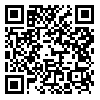Volume 7, Issue 6 (3-2015)
IJMEHM 2015, 7(6): 1-14 |
Back to browse issues page
Download citation:
BibTeX | RIS | EndNote | Medlars | ProCite | Reference Manager | RefWorks
Send citation to:



BibTeX | RIS | EndNote | Medlars | ProCite | Reference Manager | RefWorks
Send citation to:
Saeedi Tehrani1 S, Madani M. Bioethical principles and medical futility. IJMEHM 2015; 7 (6) :1-14
URL: http://ijme.tums.ac.ir/article-1-5497-en.html
URL: http://ijme.tums.ac.ir/article-1-5497-en.html
1- Department of Medical Ethics, Faculty of Medicine, Tehran University of Medical Sciences, Tehran, Iran.
Abstract: (12642 Views)
Medical futility refers to diagnostic, treatment, and rehabilitation interventions that are unlikely to produce any positive outcome for patients. Doctors should beware of such actions due to their professional commitments. There are ambiguities in the definition of futility that have been the subject of many studies. In this paper, relevant literature was reviewed to find a definition for futility from the perspective of the four bioethical principles.Determining the futility of an action, whether it is the request of the patient, their family or service providers, is a highly sensitive matter that can lead to unethical decisions in the medical profession.Autonomy is a concept that is related to the diverse views on treatment objectives. In this paper we investigated the issues of physician and patient autonomy, and the differences between the values of the people involved. We have also discussed the concept of palliative care with an attempt to clarify the difference between this type of care and futile care, and to determine the boundaries. Another focus of our study was situations where physicians and other health care providers deliver futile treatment for various purposes. Such cases involve factors that may influence the judgment of physicians, and some of them are unethical due to incentives such as financial gain.Finally, ethical decision-making in this area is only possible through clarification of the different aspects of the issue and prioritization by experts and professionals. In order to do so, all circumstances need to be taken into account, including allocation of scarce resources within the health care system and fairness. Moreover, medical staff should have access to the necessary information so that they can make ethical decisions in different situations.
Type of Study: Review |
Subject:
Medical Ethics
Received: 2015/03/5 | Accepted: 2015/03/5 | Published: 2015/03/5
Received: 2015/03/5 | Accepted: 2015/03/5 | Published: 2015/03/5
| Rights and permissions | |
 |
This work is licensed under a Creative Commons Attribution-NonCommercial 4.0 International License. |





